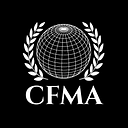A 401(k) is an account that allows employees to directly transfer a portion of their salary into long-term investments. Additionally, many employers are able to match employee contributions.
This retirement plan is “qualified”, meaning it is eligible for special tax benefits under IRS guidelines. 401(k) plans are defined-contribution plans, one of the two types of qualified retirement plans.
Defined-contribution plans are distinguished by the fact that the employee must make contributions to the account in order to increase the available balance.
In a traditional 401(k), investment earnings are not taxed until the employee withdraws money. After retirement, the account balance is completely controlled by the employee after taxes on the contributions and investments are paid.
With regards to employer contributions, about half make matching contributions to their employees’ plans. Many match 50 cents on every dollar of the employee’s contribution, up to a limit.
Another popular 401(k) option is called the Roth 401(k). This plan requires the employee to pay income tax immediately on the contributions. However, unlike the traditional plan, upon retirement, the employee is able to withdraw money with no further taxes due.
